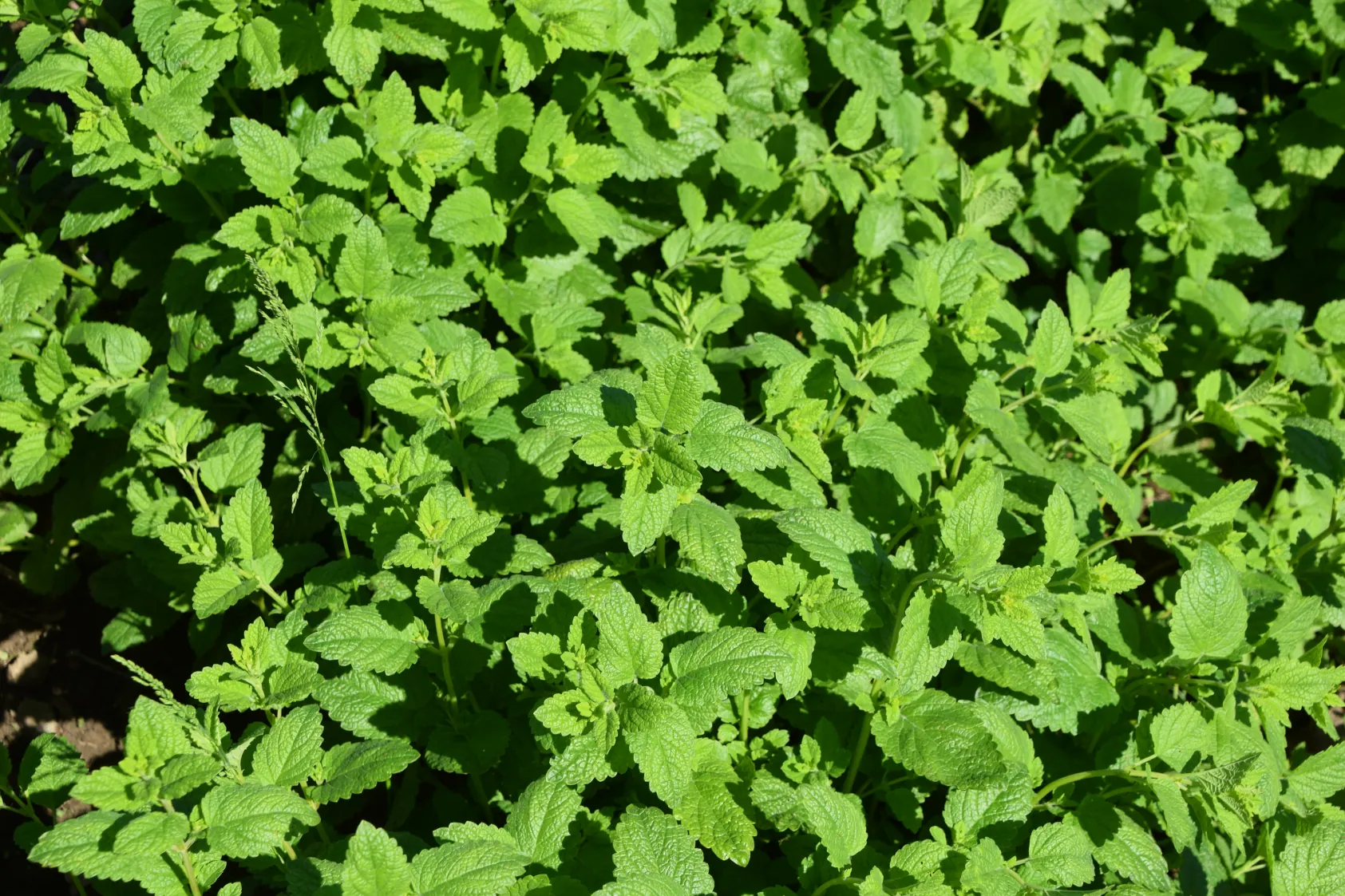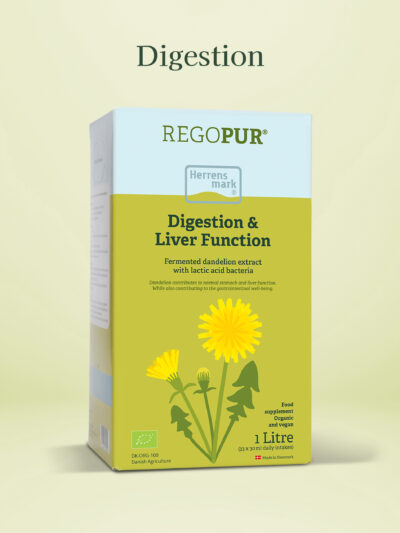Why is it called lemon balm?
Lemon balm or melissa officinalis is another herb that has been used for centuries. It was recommended by a Muslim physician (who is known in the West as Avicenna), partly because “it delights the heart” and is also why Danes still call lemon balm “hjertensfryd” (which means “heart’s delight”).
However, the first part of the herb’s Latin name melissa officinalis comes from the Greek word “mélissa”, which means honey bee. The plant was so named because its many tiny flowers are almost always swarmed by bees. The second part of its name officinalis, conversely, is an epithet indicating that the plant has been used in medicine and herbalism. Like many other herbs we now grow in our kitchen gardens, or that grow wild beside ditches, it originates from the more southern parts of Europe and the Middle East.
It was probably brought to Scandinavia by monks, and it seems a little odd from a modern perspective to think how they brought seeds, stems, roots and berries with them on their journey to the colder regions of Northern Europe; introducing plants that nowadays we largely consider to be annoying weeds that take a lot of hard work to get rid of.
Why should you use lemon balm?
If you have ever had to remove a self-cultivated bed of lemon balm without wearing gardening gloves, you will have noticed that your hand ends up smelling of lemon as if you had taken a dip in a bath full of lemons. It is a small and slender plant with an appearance all of its own. The slightly curled green leaves on their long, very upright stems have an incredibly intense scent, which brings to mind lemon balm’s well-known special effect on our nervous system, which promotes mental and physical calm and is conducive to normal sleep1.
What is interesting about it is that it regulates more than it soothes or enhances. If this sounds a little mysterious, consider its effect as a calming tea (and preferably taken together with oregano) before bedtime. You can also consider it as a way to help you maintain a positive mood. Old European herbal manuscripts refer to it most precisely as a “tonic for the nerves”. In modern language, we would call it a regulator for the nervous system (as it promotes mental and physical calm and is conducive to normal sleep). It keeps us in a state of everyday balance, whether we are up or down.
Why is lemon balm beneficial?
Lemon balm is good for our mental well-being because it contains a number of essential oils, such as citral and citronellal. Citronellal is an oil which, even in very small quantities, makes lemon balm beneficial to mental well-being. It ensures a relaxing effect and can contribute to healthy sleep1.
It should not, of course, be used as a substitute for a trip to the doctor. But the vast majority of people can easily consume this widespread but maligned pervasive plant and use it as a tea, an infusion, in smoothies or taken as a food supplement.
It contributes to maintaining a good mood, as well as helping to establish calm if we feel restless. And, not least, it contributes to maintaining cognitive functions2.
It is, in fact, one of the European plants that is very well researched and many forms of anxiety and tension can maybe be reduced by consuming the plant.
Lemon balm in the garden
REGOBONE 1 and 2 Litre – Organic
REGOMEO 1 & 2 Liter – Organic
REGOPUR 1 & 2 litre – Organic
Health claims
- Lemon balm helps to maintain positive mood and a healthy sleep. Lemon balm helps to relaxation and support mental and physical well being.(ID: 2469)
- Lemon balm helps to maintain a positive mood and good cognitive functioning, (ID: 2084)




